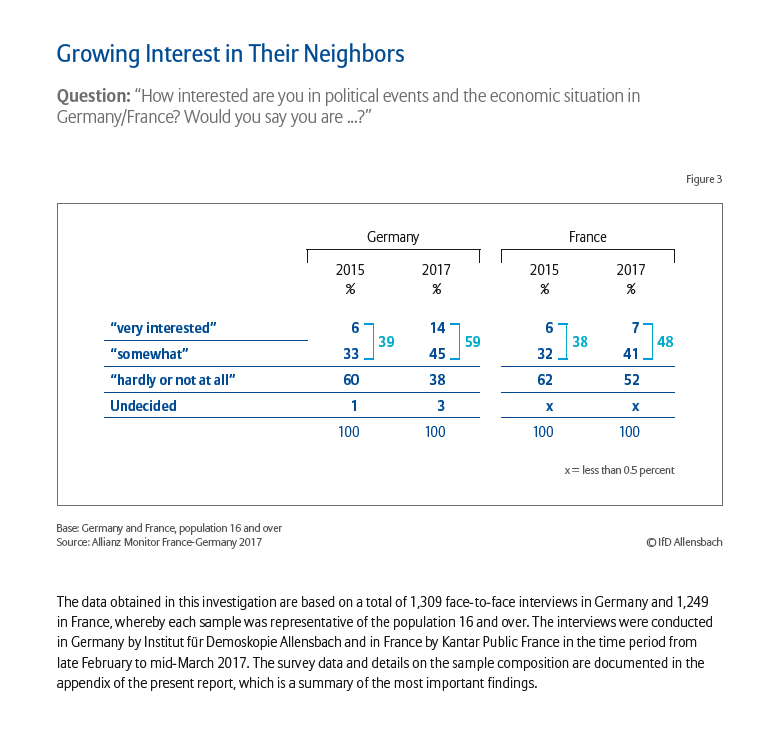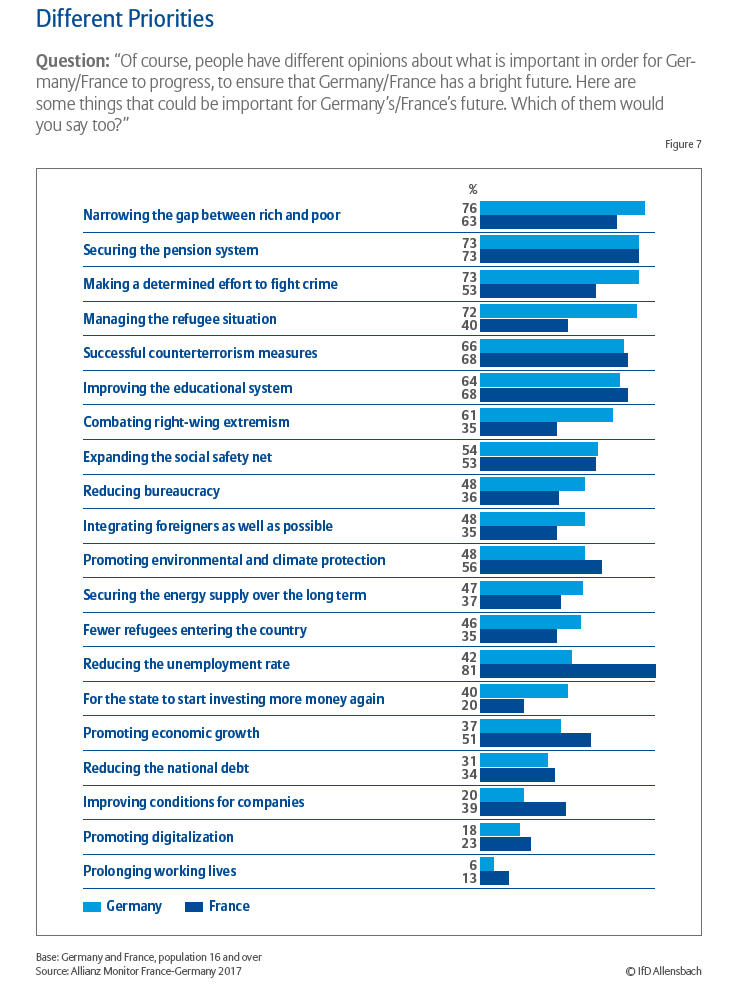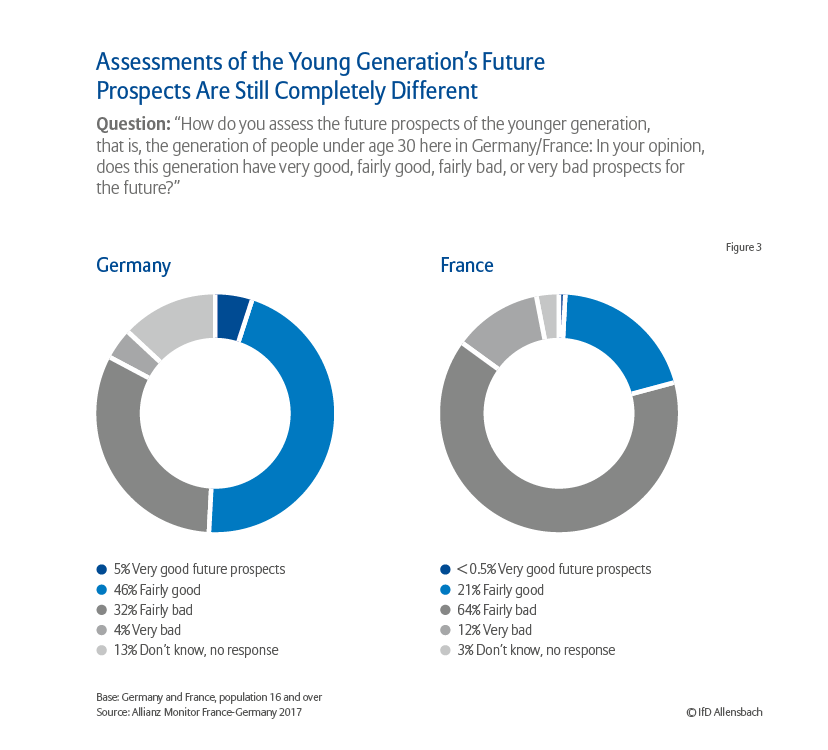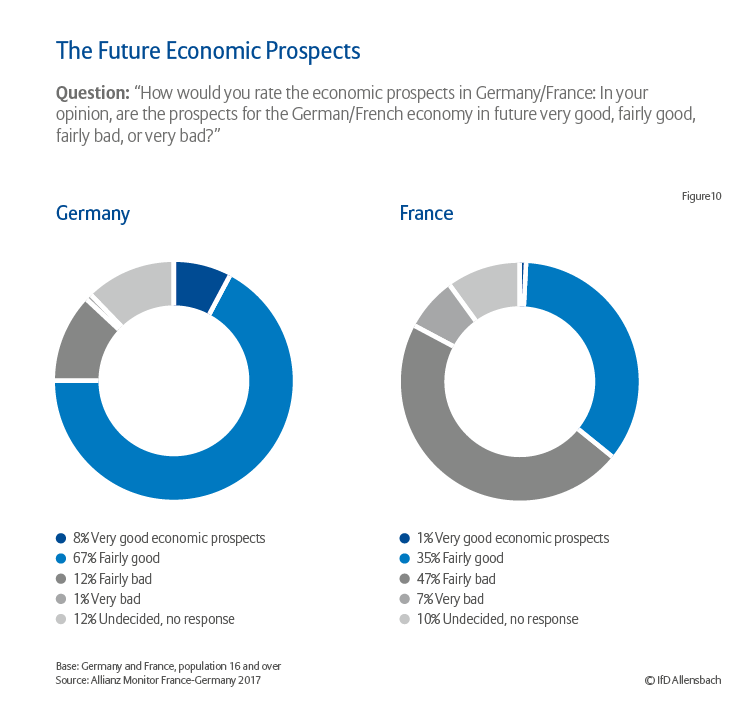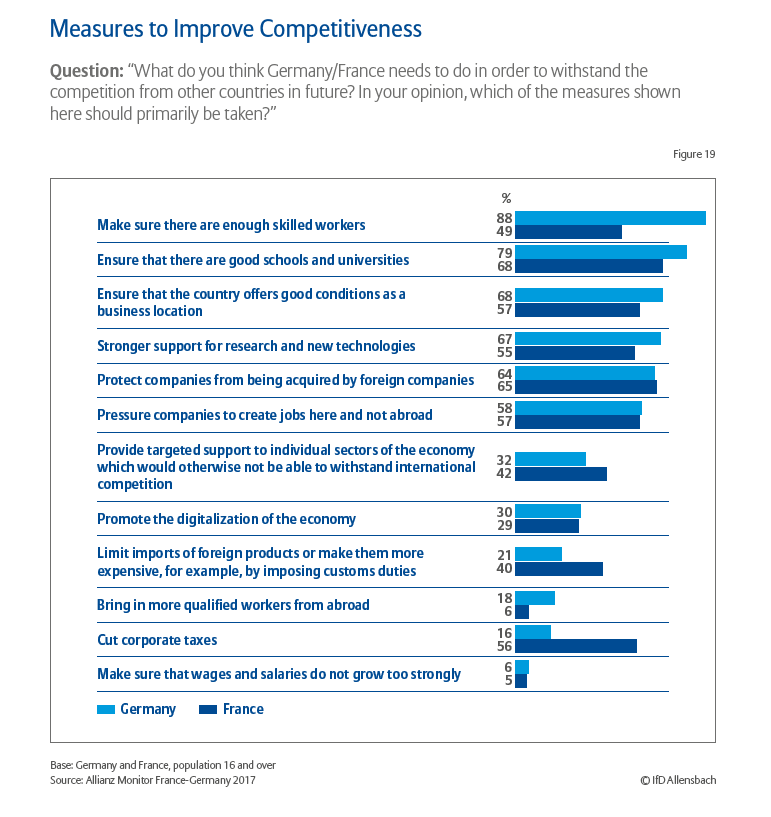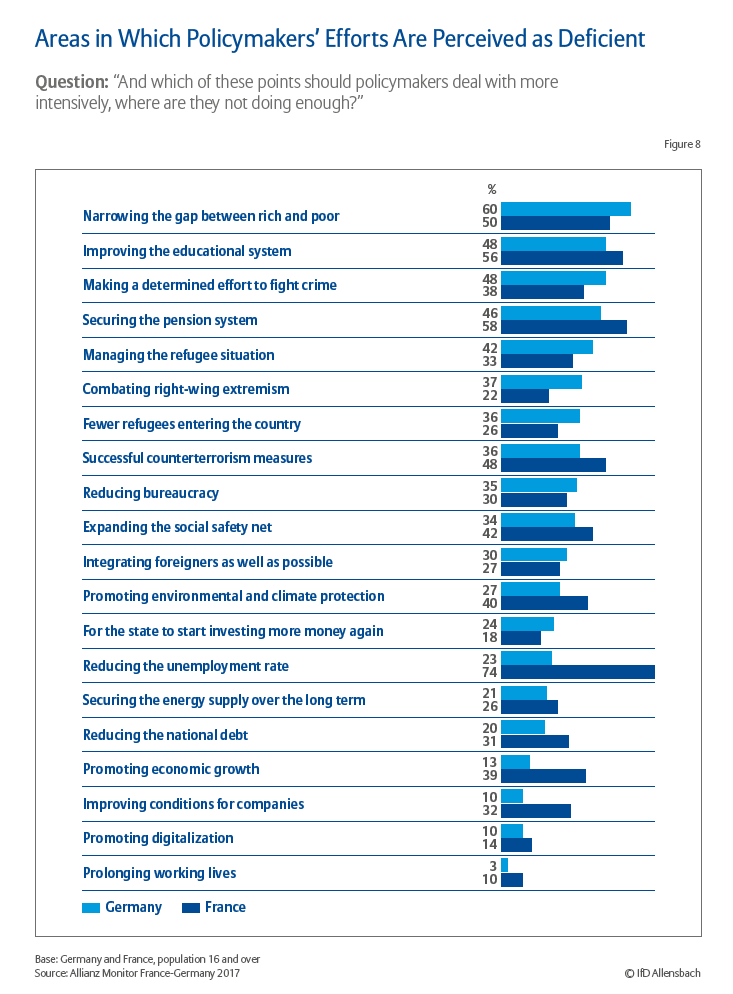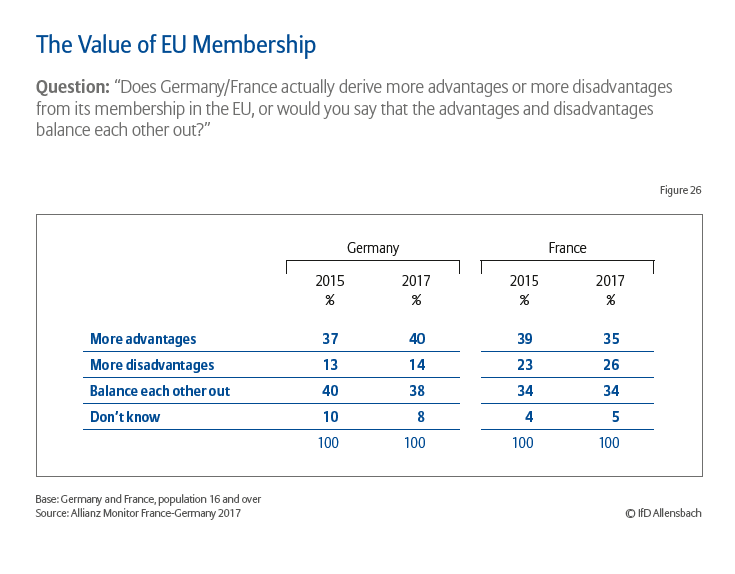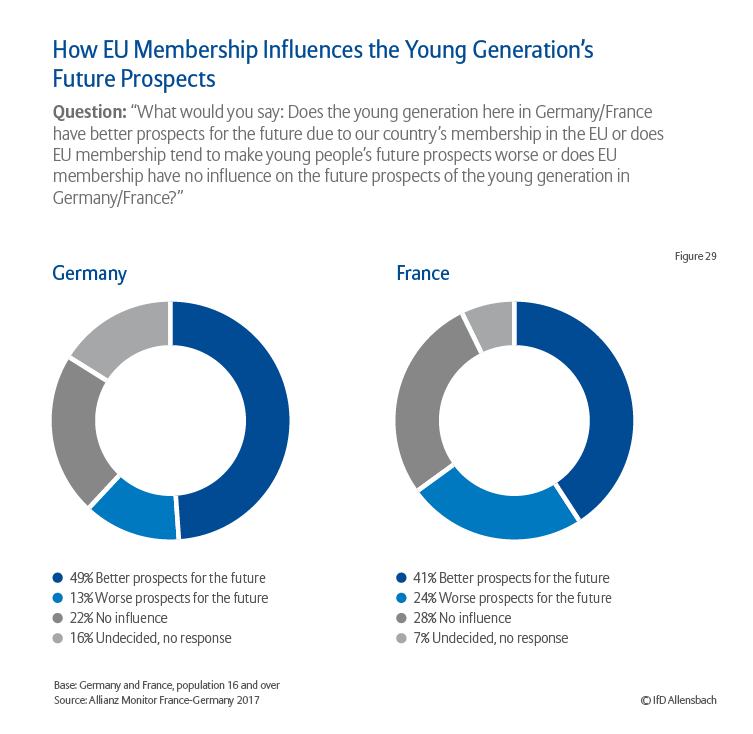Britain may be saying goodbye but France and Germany are still firmly wedded to the European Union, particularly because of the prospects it offers to the young. With the imminent departure of Britain from the EU, the relationship between France and Germany is expected to shape the future of the region.
A survey commissioned by Allianz and conducted by the Institut fuer Demoskopie Allensbach found that 49 percent of German and 41 percent of French respondents believe that the prospects of younger generations (those under the age of 30) were better with their country’s membership in the EU.
Recent events have made the citizens of the two countries more aware of the common challenges they face and heightened their interest in the political and economic situation in their neighbor.

